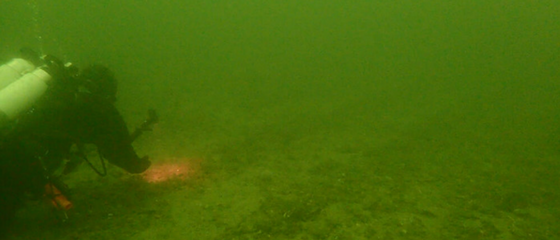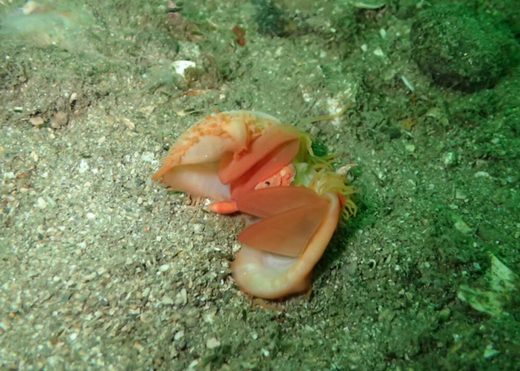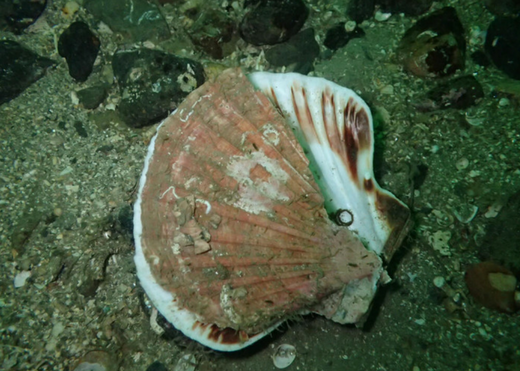Biodiversity ravaged by dredging at renowned Scottish dive site

The tragic and sudden loss of an important marine site in Scotland highlights the need for better protection of the country's inshore waters.
A rare bed of flame shells (Limaria hians) off the north-west coast of Scotland has been devastated by the heavy mechanical teeth of a scallop dredger.
Scotland's waters are rich in life and colour and home to a number of iconic species and habitats. The flame shell – a beautiful type of clam, whose rich red and orange colouration gives it its fiery name – is an iconic symbol of Scotland's inshore waters. Flame shells are found across Europe, but some of the densest concentrations of this species are found in Scotland, where they create important reef-like habitat for other species.
Loch Carron, which lies on the Scottish mainland adjacent to the Isle of Skye, was renowned among biologists and divers as one of Scotland's premier dive sites, with some of the most significant and spectacular reefs of flame shells in the country. However, this week saw the destruction of these flame shell beds – an acute reminder of the vulnerability of Scotland's delicate and productive inshore ecosystems, and the damage that can be done by a single boat dredging in these poorly-protected areas.
Footage filmed by SubSeaTV in 2015 shows the site in its former glory.
Flame shell beds are recognised as being particularly vulnerable to destructive fishing practices and are considered to be a 'priority marine feature' in Scotland, meaning that they have been identified as a national nature conservation priority. While marine protected areas (MPAs) exist in other nearby locations, Loch Carron has not been recognised as an MPA itself, despite being put forward for protection by the Marine Conservation Society.
Fauna & Flora International's (FFI) Chief Executive Mark Rose, who has a personal connection with Loch Carron, shared his feelings about the news: "I dived in Loch Carron in the 1970s and still remember the spectacular display of flame shells. I was extremely upset to hear about their destruction, and – whilst we cannot get back the unique habitats lost there this week – it reminds us all of what is at stake within Scotland's inshore waters. I feel the loss of this beautiful site on a deep personal level."

"Much more to be done"
FFI applauds the Scottish government for its work to roll out a suite of MPAs. These are a valuable and necessary first step in protecting the country's unique and important marine habitats, which underpin the productive seas upon which many people's livelihoods depend. However, the loss of a site such as this – which may never recover the same level of biodiversity value or be able to play the same role as a habitat for other species – is a reminder that much more could be done to ensure effective and sustainable marine management in Scotland.
This is something that many coastal community groups, conservationists and scientists have already highlighted to government.

Howard Wood, Community of Arran Seabed Trust (COAST) Chair and winner of the international Goldman Environmental Prize, said: "We're way behind other countries. Norway and other Scandinavian countries would not allow this in inshore waters. We need to bring our inshore fisheries up to modern-day standards. The damage will have an economic impact on the local area too – for all sectors of the fishing industry, but especially scallop divers, who have traditionally fished sustainably from the reef for many years and have now lost a valuable source of income."
"What is needed now is to learn lessons from the tragic loss of this site," said Dr Abigail Entwistle, Director of Conservation Science and Design at FFI. "We need to be thinking more carefully about what more can be done to strengthen protection for the country's incredibly valuable but vulnerable inshore habitats, and at the very least ensure that efforts are made to support and monitor the recovery of this site, so that we can ensure better management of Scotland's waters in future."
Provided by Fauna & Flora International
















